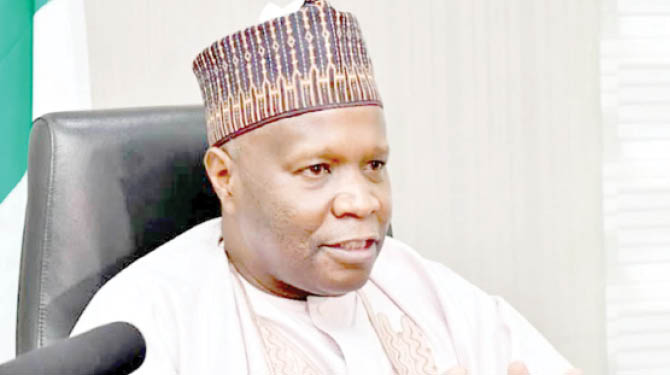It’s time to privatise Gombe United
Gombe United Football Club, a once-promising team with a rich history, has been struggling to make an impact in the Nigerian football scene despite receiving substantial financial support from the administration of Governor Muhammad Inuwa Yahaya. The club’s poor performance, coupled with the significant investment of N12m per month over the past four years, totalling […]

Gombe State Governor, Muhammadu Inuwa Yahaya
Gombe United Football Club, a once-promising team with a rich history, has been struggling to make an impact in the Nigerian football scene despite receiving substantial financial support from the administration of Governor Muhammad Inuwa Yahaya.
The club’s poor performance, coupled with the significant investment of N12m per month over the past four years, totalling approximately half a billion naira, has raised serious concerns about the management and accountability of the funds.
Governor Yahaya recently expressed disappointment with the club’s performance despite the substantial financial backing it has received. The governor’s frustration reflects the sentiments of many stakeholders and fans who have been eagerly awaiting a turnaround for the club.
However, with the club’s lacklustre performance persisting, it is clear that a change in approach is urgently needed.
- Tackling the education problem in Northern Nigeria
- Benin’s ‘tokumbo’ degrees and Nigeria, where anything goes
In contrast to Gombe United, Doma United, a privately owned club, has been making significant strides in the professional league.
The contrasting fortunes of the two clubs raise questions about the management, accountability and overall governance of Gombe United. It is evident that the current management of Gombe United has not been able to utilise the substantial funds provided to them to effectively improve the club’s performance and standing in Nigerian football.
Given the circumstances, it is imperative that decisive actions be taken to address the issues plaguing the club. First, there is a need for a thorough and independent audit of the club’s finances over the past four years to ensure transparency, accountability and proper utilisation of the funds allocated to the club. This audit will shed light on how the substantial investment has been managed and whether it has been used to achieve its intended purpose of improving the club’s performance and infrastructure.
Furthermore, it is time to consider the privatisation of Gombe United. Privatisation would introduce a new, more efficient management structure with a focus on professionalising the club’s operations, improving player development, enhancing coaching and scouting capabilities and implementing robust financial and administrative systems.
A privately owned Gombe United, driven by a competent and accountable management team, will be better positioned to compete effectively in the professional league and contribute positively to the development of Nigerian football.
Jamilu Ja’afaru (PhD) wrote from Gombe.
